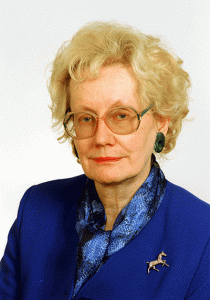The Health of the Nation: Think Autism! conference will focus on how professionals can work in partnership with carers to overcome some of the issues that carers face.
In particular, the conference will focus on carers of children, young adults and adults with autism or learning disabilities and mental health issues.
Speakers include
Dame Phillipa Russell, who is the Vice President of Carers UK and an international advocate for carers. She was formerly Chair of the Prime Minister’s Standing Commission on Carers. She has also been caring for her disabled son, Simon, for over half a century. Her talk will focus on her own experience in caring for an adult and the challenges of being an older carer.
Adam Stott, who will share his experiences of caring for his son with autism.
Dr Debbie Spain of King’s College London. She is a specialist in autism and, in particular, of Cognitive Behavioural Therapy for adults with the condition.
Lawrence Mitchell, an author who will share his experience of living with Asperger’s syndrome.
Date and location
11 June 2019, Central London
Conference background
“It is estimated that informal carers already provide at least £55 billion of unpaid care and support, so as demand for care increases over time, the need to properly support carers becomes increasingly urgent. We recognise the pressures that carers are under in relation to hospital admissions and discharges, and the increased pressures on A&E departments due to the increasing levels of need in our communities and reductions in social and community health services.”
– Richard Webb, Honorary Secretary of the Association of Directors of Adult Social Services (ADASS) www.adass.org.uk
Every day professionals are in contact with informal carers at A&E departments, hospital admissions, hospital discharges and carers in the care recipients’ home. Hence, they are potentially in a unique position in identifying carers in distress or in a crisis.
Professionals can, therefore, observe the impact on and deterioration of the carers’ psychological, emotional and physical health. They can support carers in accessing carers’ assessments and signpost to services.
This, ultimately, can contribute to preventing crisis management of the carer. It can also help to prevent severe deterioration in the carer’s health and well-being.
Early intervention
Through early intervention, the professional can reduce risk. They can also improve the quality of care to the care recipient and the quality of life of the carer and care recipient.
Fundamentally, the NHS may be making savings in the provision of health and social care. But at what cost to carers’ health and well-being, including their economic engagement?
The questions raised are:
- Are carers subjected to health and social care inequalities and economic deprivation as a consequence of their caring role?
- What impact does caring for a child/young adult/adult with autism or learning disability have on the carer’s overall well-being?
Would you like to speak at the conference?
Carers Today is looking for a volunteer to share their experience in caring for a child/young adult/adult with autism on the theme of ‘A day in the Life of a carer’. Would you like to tell the story of a carer’s everyday life and its challenges? You would be helping in our mission of raising the profile of carers of children, young adults and adults with autism or learning disabilities.
Get in touch
To volunteer to speak at the conference, or simply for more information, contact Valma James, Health and Social Care Consultant and Carers Advocate, at: Hello@Carers.Today



















